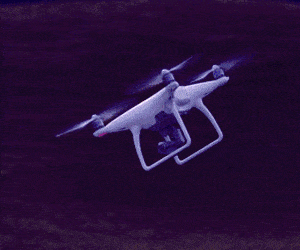A digital microphone offers directional audio and seamless integration with connected consumer devices such as laptops, webcams, and beyond.

Soundskrit, the audio company, has launched SKR0410, the Pulse-Density Modulation (PDM) Micro-Electro-Mechanical Systems (MEMS) directional microphone. The company claims that the microphone incorporates cutting-edge advancements in MEMS and acoustic transducer design, facilitating the capture of directional audio in consumer devices across various shapes and sizes. The microphone simplifies the interface with current audio chipsets, empowering the advancement of next-generation devices such as laptops, tablets, conferencing systems, Augmented Reality/Virtual Reality (AR/VR) headsets, earbuds, smart home devices, and vehicles. The PDM output of the microphone allows Original Equipment Manufacturers (OEMs) to directly integrate directional microphones into their existing systems, eliminating the requirement for external audio codecs.
The company claims that the microphones have a dipole pickup pattern that offers superior signal isolation and successfully filters out acoustic background noise. The microphone reproduces sound with rich, high-fidelity due to its highly directed pickup pattern across the audible signal range. Even in noisy situations, its directed nature allows for the clear acquisition of the desired signal while minimising the need for intensive signal processing. The microphones are power-efficient due to their low current consumption of 685 µA. Furthermore, its small size of 2.65 mm x 3.50 mm x 1.10 mm makes integrating into various gadgets and applications simple. The microphone can effectively capture audio in this frequency range because its directionality ranges from 20 Hz to 20 kHz. The microphone is designed to have a wide frequency response range, enabling it to capture a broad spectrum of audio frequencies accurately.
“We see more and more that OEMs are requesting digital microphones since they interface more easily with existing chipsets,” said Sahil Gupta, Product Lead and co-founder of Soundskrit. “The SKR0410 was developed to respond to this request while also bringing meaningful user experiences to the end consumer. This PDM microphone is just the first step into a variety of products and development tools we have planned to help our customers easily access the power of our technology.”
Some of the key features and specifications of the device include:
- 20 Hz – 20 kHz directionality
- 4.8 dB full-spectrum diffuse noise rejection
- >20 dB noise rejection at the null
- 63.5 dBA SNR
- PDM output
- 1% THD at 111 dB SPL
- 685 µA current consumption
- 2.65 mm x 3.50 mm x 1.10 mm small package
The press release highlights that building directionality into the microphone hardware enhances voice isolation while reducing power consumption and computational resources.
For more information, click here.







“The microphones are power-efficient due to their low current consumption of 685 A.”
Instead of micro Amperes it is mentioned as Amperes.
It should be 685 µA. But in the final specifications it is mentioned correctly.
Thanks for your valuable comment. 685 µA is correct